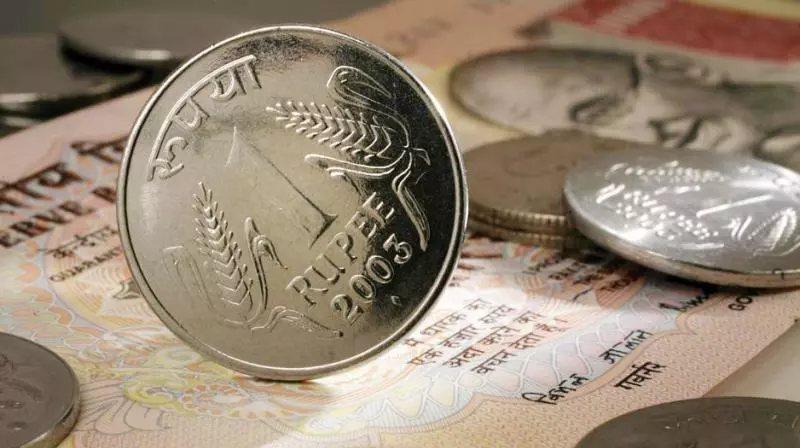India's Rupee Plummets to Record Low: Urgent Calls for Economic Reform

In the wake of recent economic turbulence, the Indian rupee plummeted to an unprecedented closing low yesterday, sparking concerns among investors and policymakers alike. Trading at an alarming rate against major global currencies, the rupee's performance has sent shockwaves through financial markets, prompting analysts to scrutinize the underlying factors contributing to this dramatic downturn.
According to financial experts, the rupee's downward spiral can be attributed to a combination of domestic and international factors. Domestically, mounting inflationary pressures, exacerbated by rising commodity prices and supply chain disruptions, have eroded the purchasing power of the rupee, casting a shadow over India's economic outlook. Furthermore, concerns surrounding fiscal deficits and the government's fiscal policy stance have added to the currency's woes, undermining investor confidence in the Indian economy.
Internationally, the rupee's depreciation has been exacerbated by a confluence of global events, including the resurgence of the COVID-19 pandemic and its impact on global trade and economic activity. With several countries imposing lockdowns and travel restrictions to contain the spread of the virus, demand for Indian exports has dwindled, putting additional pressure on the country's external trade balance and currency reserves.
In response to the rupee's freefall, the Reserve Bank of India (RBI) has intervened in the foreign exchange market, attempting to stabilize the currency through a combination of monetary policy measures and intervention strategies. However, these efforts have thus far proven insufficient to stem the tide of depreciation, raising concerns about the central bank's ability to effectively manage the currency's volatility amidst mounting economic challenges.
Market analysts have warned that unless decisive action is taken to address the underlying structural issues plaguing the economy, the rupee's downward trajectory may persist, with potentially far-reaching implications for India's macroeconomic stability and financial resilience. In particular, policymakers have been urged to prioritize structural reforms aimed at boosting productivity, enhancing export competitiveness, and restoring investor confidence in the economy.
In light of these developments, stakeholders across the board have called for a coordinated and proactive approach to address the root causes of the rupee's decline, emphasizing the need for policy coherence and reform momentum to steer the economy back on course. With the global economic landscape in a state of flux and uncertainty, the stakes have never been higher for India to chart a course towards sustainable growth and prosperity.
Speaking to reporters, renowned economist Dr. Rajesh Kumar underscored the urgency of the situation, warning that the rupee's depreciation could have far-reaching implications for India's economic trajectory. "The rupee's downward spiral is a wake-up call for policymakers to redouble their efforts in addressing structural bottlenecks and fostering an environment conducive to investment and growth," he remarked.
Echoing similar sentiments, industry leaders have called for a collaborative approach between the public and private sectors to navigate the challenges posed by the rupee's depreciation and steer the economy towards a path of recovery and resilience. "Now more than ever, it is imperative for stakeholders to work together towards a common goal of revitalizing India's economic prospects and restoring investor confidence," remarked Amit Singh, CEO of a leading multinational corporation operating in India.
In conclusion, the rupee's all-time closing low underscores the urgent need for concerted action to address the underlying structural challenges facing the Indian economy. With the stakes higher than ever, policymakers, regulators, and industry stakeholders must come together to formulate and implement bold reforms aimed at fostering sustainable growth, enhancing competitiveness, and restoring confidence in India's economic prospects. Only through collective effort and strategic foresight can India overcome the current headwinds and emerge stronger on the global stage.

